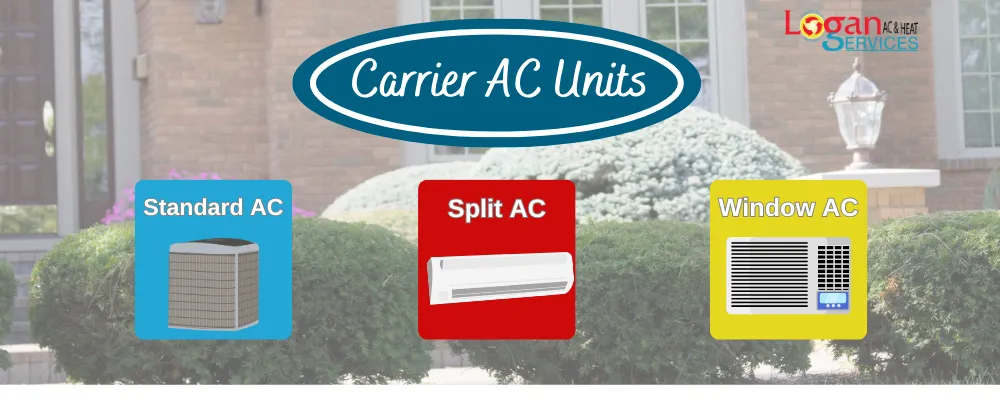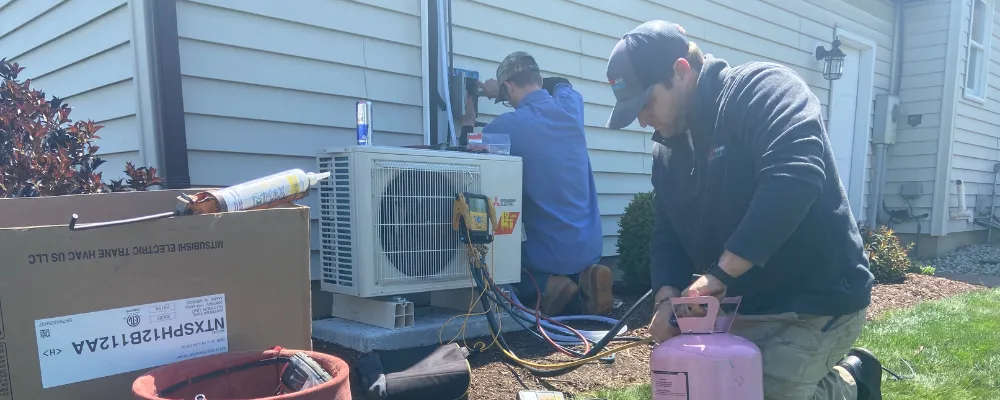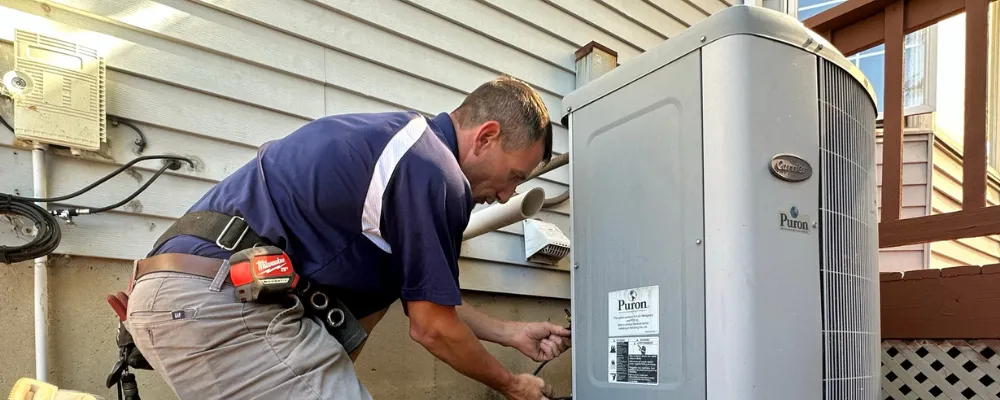Looking to purchase a new air conditioner? This comprehensive guide will provide you with all the information you need to know about Carrier air conditioners. From the history of Carrier AC units to the different types available, we will explore the features and benefits of each. Whether you’re interested in standard, split, or window Carrier AC units, this guide has got you covered.
Read on to learn more about what to look for in an air conditioner and make an informed decision for your cooling needs.
Carrier History:
Carrier is a household name when it comes to air conditioner systems, but do you know about the history of Carrier AC Units? The company was started in 1902 by Willis Carrier, the inventor of the first air conditioner. It was initially launched to improve the manufacturing process in a printing plant and has since come a long way, offering a wide range of premium, energy-efficient AC units.
Different Types of Carrier AC Units
Carrier offers many air conditioner systems designed to meet various needs and budgets. Whether you’re looking for a standard comfort feature or enhanced energy savings, Carrier may have AC solution. Let’s explore some of the various types of Carrier air conditioners.

Standard Carrier AC Units
Standard Carrier AC units offer all the basics you need for comfortable, reliable, and energy-efficient cooling. These central air conditioning units come with standard comfort features and energy efficiency. They help circulate indoor air effectively, keeping your space cool and comfortable during the hottest summer months. Carrier’s standard air conditioner systems are also Energy Star® certified, meaning they meet energy savings standards.
Split Carrier AC Units
Carrier’s split air conditioner comprises two parts: an outdoor unit and an indoor unit. This design relies solely on electricity and allows for operation without the use of ductwork. Carrier’s premium split air conditioners, like many in this space, are known for their high efficiency, quiet operation, and energy savings.
Window Carrier AC Units
Last but not least, Carrier also offers window AC units. These are compact and ideal for cooling smaller spaces. Although not as energy-efficient as the split or central air conditioning units, window AC units are a more affordable option and easier to install. They also come with standard comfort features such as adjustable temperature settings, air direction control, and energy-saving modes.

What Features to Look for in an Air Conditioner
Choosing the right air conditioner can be overwhelming, given the myriad of available options. To ensure that your home remains cool and comfortable during the hottest months, here are the key features you should look for in an air conditioner, regardless of the brand:
Efficiency:
One of the primary considerations is the efficiency of the air conditioner. Look for units with a Seasonal Energy Efficiency Ratio (SEER) rating of at least 14-SEER2. Higher SEER ratings translate to lower energy consumption, leading to reduced utility bills. Opting for higher SEER ratings, such as close to 20-SEER, can significantly cut down your cooling costs [1].

Refrigerant Type:
Ensure the air conditioner uses environmentally friendly refrigerants like R-410A. The use of R-22 refrigerant has been phased out due to its harmful impact on the ozone layer. R-410A is more eco-friendly and will also save you from expensive servicing fees once R-22 becomes scarce [1].

Ductwork Design
Properly sized and balanced ductwork is essential for achieving consistent cooling throughout your home. Externally insulated round ducts are efficient, while long runs of flexible ducts should be avoided when possible due to decreased efficiency.
Location of Indoor and Outdoor Units:
The location of the indoor and outdoor units plays a crucial role in system performance and maintenance. Avoid attic-mounted furnaces, as they may cause leaks and water damage. Instead, opt for floor-level installations, which are easier to service. Similarly, the outdoor unit should be placed away from areas where noise might disturb occupants and where it can be easily damaged [1].
Coil Type:
The type of coil used in the air conditioner impacts its durability and efficiency. Coils made of a single metal, such as aluminum or copper, tend to last longer and perform better. In mildly corrosive environments, consider specially coated coils to prevent damage from salt spray [1].

Balanced Airflow:
Adequate return-air considerations are vital to ensure that conditioned air can efficiently enter and occupy each room. To achieve this, rooms should ideally have both entering-air registers and return-air vents. If this is not possible, you may consider using transfer grilles or jump ducts to maintain balanced airflow [1].
Accessible Air Filters:
Air filters should be easy for homeowners to access and replace. Regular filter replacement is essential for optimal air conditioner performance and indoor air quality. Ensuring easy access will encourage homeowners to maintain the system effectively [1].

By considering these key features, homeowners can make informed decisions when choosing an air conditioner for their homes. Investing in a high-quality, energy-efficient system with proper installation and maintenance will provide comfort and lead to long-term savings on energy bills and repair costs.
The Importance of Proper AC Installation:
When it comes to choosing an air conditioner, many people focus on the unit itself. They look at the size, the efficiency, and the features. However, it is also important to consider the installation. A poorly installed air conditioner can be inefficient, noisy, and even dangerous.

Here are some of the reasons why AC installation is just as important as the unit you choose to install:
- Proper installation can improve efficiency. A well-installed air conditioner will be able to move the air more efficiently, saving you money on your energy bills.
- It can reduce noise. A poorly installed air conditioner can be noisy and a nuisance for you and your neighbors.
- It can improve safety. A poorly installed air conditioner can be a fire hazard. It is important to make sure that a qualified technician installs the unit.
If you are considering buying an air conditioner, be sure to factor in the installation cost. Regardless of the ac brand, a well-installed air conditioner will save you money in the long run.
The Logan Difference:
Logan is a family-owned and operated business that prioritizes customer satisfaction and high-quality installations. Our installers undergo rigorous training to ensure they provide the best service possible.








